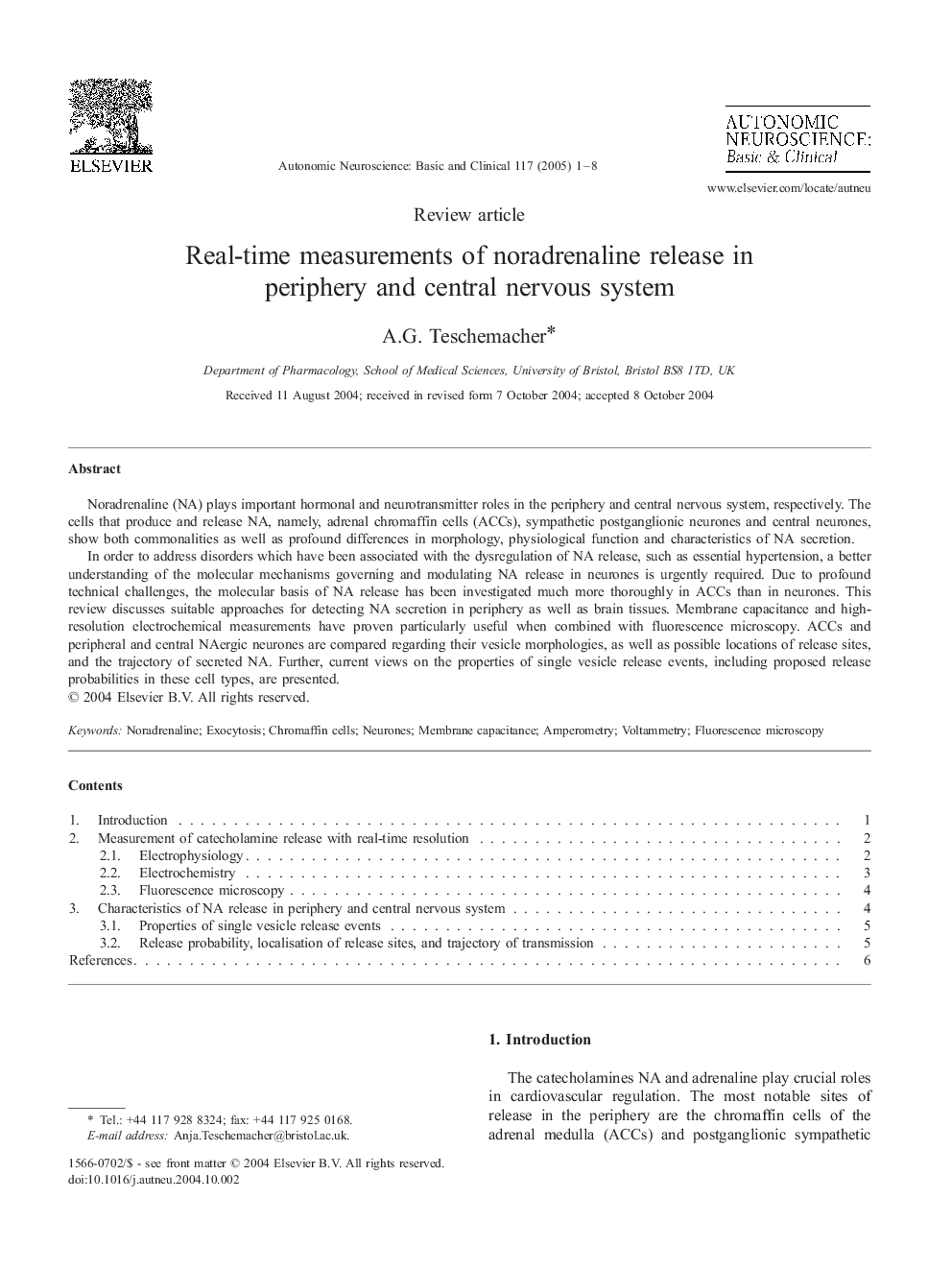| Article ID | Journal | Published Year | Pages | File Type |
|---|---|---|---|---|
| 9186598 | Autonomic Neuroscience | 2005 | 8 Pages |
Abstract
In order to address disorders which have been associated with the dysregulation of NA release, such as essential hypertension, a better understanding of the molecular mechanisms governing and modulating NA release in neurones is urgently required. Due to profound technical challenges, the molecular basis of NA release has been investigated much more thoroughly in ACCs than in neurones. This review discusses suitable approaches for detecting NA secretion in periphery as well as brain tissues. Membrane capacitance and high-resolution electrochemical measurements have proven particularly useful when combined with fluorescence microscopy. ACCs and peripheral and central NAergic neurones are compared regarding their vesicle morphologies, as well as possible locations of release sites, and the trajectory of secreted NA. Further, current views on the properties of single vesicle release events, including proposed release probabilities in these cell types, are presented.
Keywords
Related Topics
Life Sciences
Neuroscience
Cellular and Molecular Neuroscience
Authors
A.G. Teschemacher,
